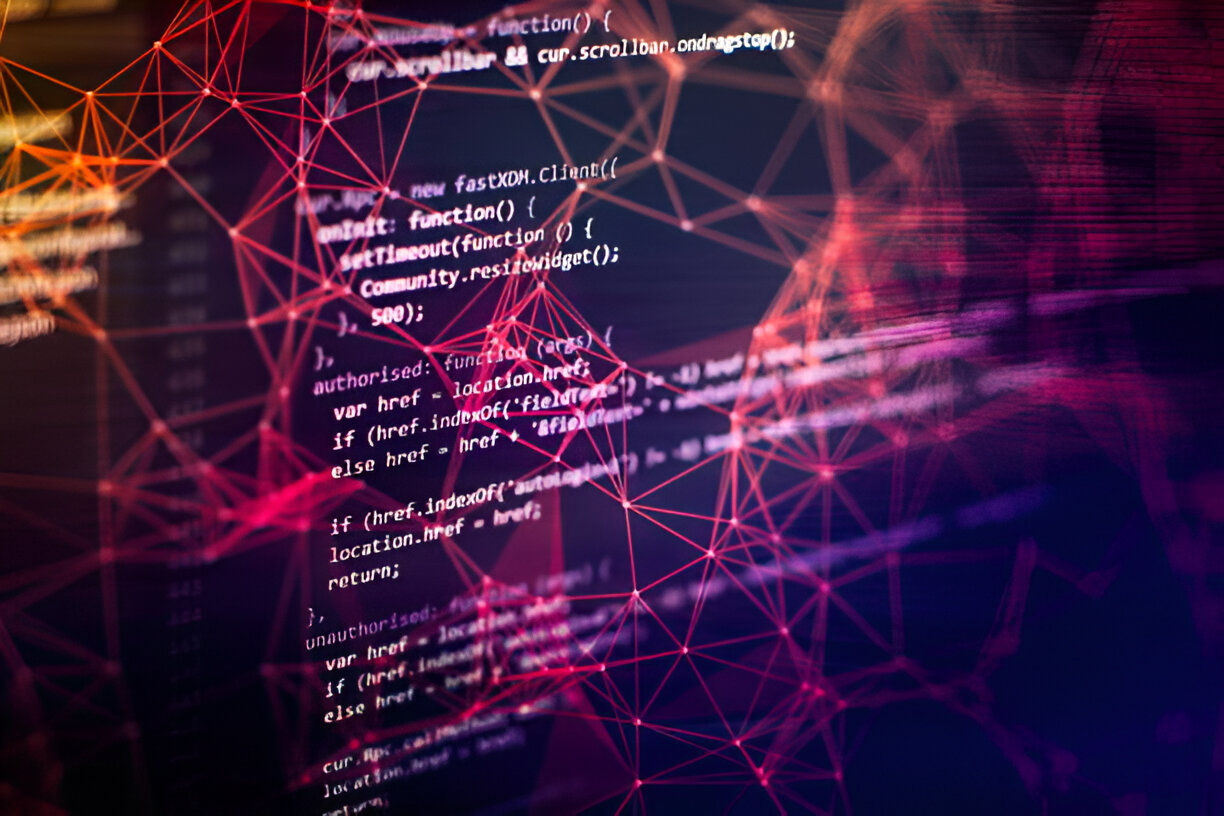In today’s digital landscape, threats to cybersecurity are more prevalent than ever. With sophisticated malware, phishing attacks, and data breaches becoming commonplace, organizations are left to grapple with the harsh realities of cybersecurity. Traditional security measures, once deemed sufficient, are now proving inadequate against the rising tide of cybercrime. This is where the role of AI in cybersecurity comes into play.
How effective are traditional security protocols when faced with increasingly advanced threats? Can AI craft a more formidable barrier against these relentless attacks? As we venture further into the world of AI, we recognize its transformative impact on cybersecurity, providing not only enhanced protection but also strategic advantages that empower businesses to safeguard their assets effectively.
AI in Cybersecurity – Transforming Security Solutions
The realm of cybersecurity is undergoing a dramatic transformation fueled by advancements in AI technology. Organizations are leveraging AI to enhance their security infrastructure, detect anomalies, and respond promptly to emerging threats. AI solutions facilitate the ongoing analysis of vast data sets, identifying patterns that might go unnoticed by human analysts.
Importance of AI Case Studies Cybersecurity
Case studies serve as crucial evidence of AI’s efficacy in real-world scenarios. For example, a renowned financial institution implemented an AI-driven cybersecurity system that reduced incident response time by 50%. According to a 2025 study conducted by McKinsey, organizations adopting AI tools saw a 60% increase in their ability to detect threats compared to facilities that relied solely on traditional methods.
One prominent study highlights how AI-powered systems can analyze millions of events per second, detecting suspicious behavior and triggering alerts. Companies that have embraced such tools have reported an average of 30% fewer successful breaches, showcasing the tangible benefits of AI in protecting sensitive data.
Notable AI Tools in Cybersecurity
Several AI tools are at the forefront of enhancing cybersecurity measures:
- Darktrace: This AI tool utilizes machine learning to model and understand normal network behavior. When unusual activity is detected, it responds autonomously to neutralize potential threats in real time.
- CrowdStrike Falcon: This cloud-based solution uses AI algorithms to provide advanced threat detection and endpoint protection, enabling proactive responses to security incidents.
- Tenable.io: This AI-driven platform offers continuous network monitoring by leveraging machine learning to identify vulnerabilities and misconfigurations, providing organizations a comprehensive security posture.
These tools demonstrate unique features that distinguish them in the cybersecurity landscape, from anomaly detection to proactive threat mitigation, highlighting the essential role of AI in enhancing security measures.
Advantages of AI Tools in Cybersecurity
Understanding the advantages of AI tools in cybersecurity involves recognizing their ability to significantly heighten security measures and streamline operations.
Enhanced Threat Detection Using AI
AI tools are prominently known for their adeptness at identifying threats—far beyond the capabilities of human analysts. By employing machine learning algorithms, AI systems can process and analyze vast amounts of data, detecting patterns and anomalies indicative of potential threats.
For instance, in July 2025, an AI-driven system identified a previously undetected ransomware variant in a multinational healthcare firm, successfully stopping it before any damage occurred. By comparing real-time data against historical patterns, this AI tool mitigated a potentially catastrophic loss.
Additionally, a recent study indicated that businesses integrating AI into their cybersecurity managed to thwart four out of five cyberattacks. This remarkable success underscores the value of leveraging AI to bolster threat detection mechanisms.
Streamlining Incident Response with AI
Automating and improving the incident response process is another significant advantage offered by AI. By rapidly analyzing data and responding to incidents in real time, AI drastically reduces the time it takes to mitigate threats.
In the event of a security breach, AI can instantly trigger pre-configured responses, limiting the extent of damage. For example, an AI tool integrated with an organization’s security system can automatically isolate affected systems, preventing further infiltration while informing the security team about the nature of the breach.
Integration with existing tools can also enhance operational efficiencies. Companies have reported up to a 70% improvement in incident response times after implementing AI tools in combination with their current cybersecurity frameworks. With automated systems working alongside human analysts, organizations can maintain a proactive security stance.
AI Case Studies Cybersecurity – Real-World Success
The application of AI in cybersecurity has produced numerous success stories across various industries, showcasing its effectiveness in mitigating risks.
Industry-Specific AI Case Studies Cybersecurity
In the finance sector, an investment firm utilized AI-driven cybersecurity tools to enhance its data protection strategies. Following AI integration, the firm experienced a remarkable 90% reduction in successful phishing attempts. The tool’s unique capabilities allowed it to identify and flag suspicious emails before they reached employees’ inboxes.
Another example can be found in the healthcare industry, where a leading hospital implemented an AI system to secure medical devices connected to its network. By using machine learning algorithms, the hospital achieved a 40% decrease in unauthorized access attempts, significantly enhancing the security of sensitive patient data.
In retail, one company incorporated AI into its cybersecurity infrastructure, generating a 50% reduction in credit card fraud incidents. By analyzing transaction patterns, the AI enabled the company to identify anomalous activity, ensuring customers’ financial information remained secure.
Lessons Learned from AI Case Studies Cybersecurity
From these case studies, several key insights emerge:
- Proactive Defense: Organizations that proactively implement AI strategies generally experience fewer successful threats compared to those reactive to incidents. Early detection empowers companies to address vulnerabilities before they can be exploited.
- Customization is Essential: Tailoring AI solutions to specific industry challenges is vital. Diverse sectors like finance, healthcare, and retail face unique threats that require specialized AI tools.
- Potential Pitfalls: Integrating AI isn’t without its challenges. Companies should be mindful of data privacy regulations, as AI systems often require access to large datasets. Ensuring compliance with legal standards is crucial.
By recognizing these lessons, organizations can effectively replicate success while avoiding common pitfalls associated with AI integration in cybersecurity.
Role of a Software Development Company in Cybersecurity
Software development companies play a pivotal role in advancing AI applications in cybersecurity. They serve as the architects of custom solutions that cater to specific security needs.
Importance of Custom AI Solutions
A software development company specializes in creating tailored AI solutions to address the unique challenges each organization faces. By partnering with clients to understand their specific cybersecurity requirements, these companies can design systems that effectively mitigate risks while remaining flexible to accommodate evolving threats.
For example, a software development company may work closely with an e-commerce platform to develop custom AI tools capable of detecting fraudulent transactions in real time, thus enhancing the robustness of online transactions. This tailored approach results in more effective protective measures while fostering a culture of collaboration and innovation.
Emerging Trends in Software Development for AI
Staying abreast of emerging trends in software development is essential for enhancing AI capabilities in cybersecurity. As businesses increasingly prioritize comprehensive cybersecurity strategies, trends such as Agile development and DevSecOps have gained traction. This ensures that security measures are integrated at every phase of software development.
Additionally, the rise of cloud-based solutions has transformed how cybersecurity tools are deployed and managed. Software development companies can create scalable AI solutions that provide organizations flexibility and agility as they navigate the complexities of cyber threats.
Mobile App Development Company and Cybersecurity Integration
The mobile app development company is now more crucial than ever in implementing cybersecurity protocols, especially given the proliferation of mobile applications.
AI Features in Mobile Apps for Security
AI tools can significantly enhance security functionalities in mobile apps by incorporating features designed to safeguard user data and ensure privacy. Some essential AI-driven features include:
- Behavioral Biometrics: Monitoring user behavior to detect any anomalies, such as unusual swipe patterns or touch pressure, adds an extra layer of security.
- Real-Time Threat Detection: AI can analyze incoming and outgoing traffic in real-time, notifying users of potential threats before they reach critical applications.
- Automated Security Updates: Utilizing AI, mobile applications can monitor for vulnerabilities and automatically apply security patches, ensuring users always operate with the latest protections.
These security enhancements provide users with peace of mind and bolster overall trust in the application.
Case Studies of Successful Mobile App Security Implementations
Numerous mobile applications are successfully leveraging AI for enhanced cybersecurity. For instance, a widely used banking app incorporated AI-driven fraud detection algorithms, significantly lowering its fraud incident rates by 60% within six months of implementation. User feedback indicated heightened trust in the app’s security features, resulting in a notable increase in customer engagement.
Another example is a popular health tracking application that utilized AI to ensure that sensitive user data was encrypted end-to-end. Feedback highlighted users’ confidence in the app’s ability to protect their health records, leading to a growth in user subscriptions.
These real-world examples illustrate how incorporating AI-driven security measures can yield significant enhancements in user trust and privacy.
Future of AI in Cybersecurity – What Lies Ahead
As technology advances, so too does the landscape of cybersecurity. Looking ahead, the future of AI in this field is promising, with new technologies on the horizon.
Anticipated Technologies in AI Cybersecurity
Emerging technologies such as quantum computing and advanced machine learning algorithms will further refine AI applications in cybersecurity. Quantum computing holds the potential to revolutionize encryption methods, creating virtually unbreakable codes that ensure data integrity.
Additionally, the integration of AI with augmented reality (AR) could facilitate immersive cybersecurity training experiences, helping organizations better prepare their teams to identify and respond to threats in real time. These advancements will set new industry standards, pushing organizations to continually adapt their security measures.
Preparing for Future Challenges with AI in Cybersecurity
Organizations can adopt specific strategies to prepare for future challenges with AI in cybersecurity, including:
- Regular Audits: Regular assessments of AI systems will ensure they stay effective amidst evolving threats.
- Investing in Training: Equipping employees with knowledge on emerging cybersecurity threats and appropriate AI tools reinforces overall security posture.
- Developing Adaptive Strategies: Organizations should remain agile to adjust to new technology advancements and threat landscapes, continuously evaluating and enhancing cybersecurity measures.
By being proactive and adopting these strategies, organizations can leverage AI to maintain resilience against future challenges.
Conclusion
The importance of AI in cybersecurity cannot be overstated; its transformative capabilities enhance threat detection, improve response times, and refine security protocols. As cybersecurity threats continue to evolve, embracing AI is no longer a luxury but a necessity for organizations looking to safeguard their assets effectively.
With AI-first companies like Wildnet Edge leading the charge, the implementation of AI solutions across various domains has never been more essential. As the landscape continues to shift, businesses must consider how they can harness the power of AI to bolster their security strategies and safeguard their operations against emerging threats.
FAQs
Q1: What are the key advantages of AI in cybersecurity?
AI enhances threat detection, streamlines incident response, and automates security processes, providing organizations with an effective means to safeguard against cyber threats.
Q2: How can AI case studies cybersecurity help businesses?
They provide valuable insights into real-world applications of AI, illustrating the benefits of adopting AI tools and the resulting improvements in security measures.
Q3: What AI tools in cybersecurity are the most effective?
Tools such as Darktrace, CrowdStrike Falcon, and Tenable.io showcase remarkable effectiveness in protecting against cyber threats through their advanced capabilities.
Q4: How does a software development company enhance cybersecurity with AI?
They create customized AI solutions tailored to specific security challenges, allowing organizations to enhance their defenses based on their unique requirements.
Q5: Why should a mobile app development company focus on cybersecurity?
Integrating AI for security enhances user trust, protects sensitive data, and ensures compliance with regulations—ultimately bolstering the overall success of the application.

Nitin Agarwal is a veteran in custom software development. He is fascinated by how software can turn ideas into real-world solutions. With extensive experience designing scalable and efficient systems, he focuses on creating software that delivers tangible results. Nitin enjoys exploring emerging technologies, taking on challenging projects, and mentoring teams to bring ideas to life. He believes that good software is not just about code; it’s about understanding problems and creating value for users. For him, great software combines thoughtful design, clever engineering, and a clear understanding of the problems it’s meant to solve.
 sales@wildnetedge.com
sales@wildnetedge.com +1 (212) 901 8616
+1 (212) 901 8616 +1 (437) 225-7733
+1 (437) 225-7733































